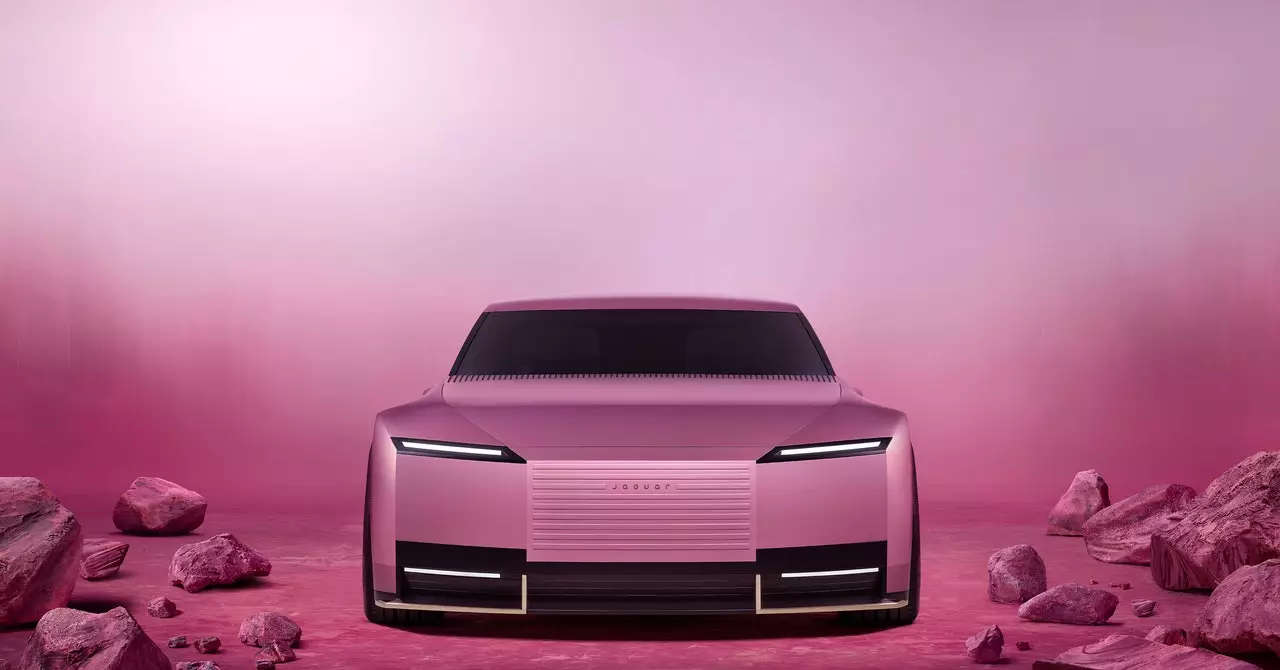Jaguar, a name synonymous with luxury and performance in the automotive industry for over nine decades, recently thrust itself into the spotlight with a provocative rebranding strategy. However, this daring move didn’t just transform its visual identity; it stirred up significant debate, drawing intense criticism from enthusiasts and casual observers alike. With a focus on diversity and a modern ethos, the brand seems eager to shake off past conventions at the risk of alienating its long-time clientele. The decision to feature an extravagant promotional rollout—complete with vibrant visuals and a diverse cast—without showcasing a new vehicle certainly raised eyebrows. Critics, including high-profile figures like Elon Musk, questioned the essence of the brand’s offerings, with Musk bluntly asking, “Do you sell cars?”
Introducing the Future: Type 00
In light of the criticisms, Jaguar finally unveiled its first fully electric model, the Type 00, during the Art Miami event. This introduction marks a pivotal moment for the iconic brand as it embarks on a journey into the electric vehicle (EV) realm. While the aesthetics of the Type 00 may wow potential buyers, its successful integration into Jaguar’s identity and legacy is yet to be determined. The marketing and design strategies employed will play an integral role in how the newly minted EV is received in a market rife with both opportunity and skepticism. Rawdon Glover, the managing director of Jaguar, has articulated a vision focused on attracting a younger and more affluent demographic. He highlights the need for the brand to reinvent itself to cultivate a relationship with these future buyers—those who desire creative autonomy and are materializing a unique sense of self through their vehicles.
Jaguar’s foray into electric vehicles doesn’t just represent a product launch; it encapsulates broader cultural shifts in consumer preferences and the industry at large. The critique of its new direction reflects a struggle between maintaining tradition and embracing change. With a rapidly evolving automotive landscape, characterized by a shift towards sustainability and innovative design, Jaguar must tread carefully. The backlash against the potential ‘wokeness’ of its branding could signify a disconnect between the company’s traditional ethos and the new generation’s expectations. The challenge lies in harmonizing these differing viewpoints while delivering a product that meets performance and luxury standards expected from a brand with such a rich heritage.
Jaguar stands at a crossroads. In seeking to redefine its image and reach a burgeoning market segment, it finds itself navigating complex social dynamics while remaining true to its legacy. The announcement of the Type 00 brings about a sense of cautious optimism, yet the surrounding chatter continues to cast a shadow over its transition. It is essential for Jaguar not only to address the critiques head-on but also to demonstrate through their vehicle offerings that innovation does not mean abandoning the core values that have made the brand iconic. The brand’s ability to adapt without losing its soul will ultimately dictate its future success amid the electric vehicle revolution. This venture into the new era must echo both the whispers of the past and the roars of the future, ensuring that the Jaguar name remains synonymous with automotive excellence.

